May 19, 2025 | 08:10 GMT +7
May 19, 2025 | 08:10 GMT +7
Hotline: 0913.378.918
May 19, 2025 | 08:10 GMT +7
Hotline: 0913.378.918
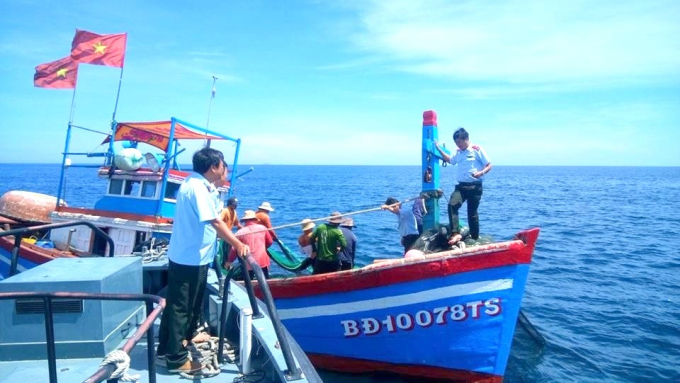
The functional forces inspect the implementation of anti-IUU fishing law on Binh Dinh fishing vessels.
The European Commission (EC) on October 23, 2017, warned of a "yellow card" for Vietnamese seafood products exported to the European market (EU) for they did not fully comply with the regulations against illegal, unreported, and unregulated (anti-IUU) fishing.
After nearly four years of combating IUU fishing and "yellow card" removal, the EC has organized two investigation visits to Vietnam and made four groups of recommendations that Vietnam needs to implement in near future. The recommendations include a legal framework; monitoring, inspecting, controlling, and managing the fishing vessels and their activities; certifying for output and traceability of aquatic products; and law enforcement.
The EC recently is very concerning after assessing Vietnam's updated report. The agency believes that there are still serious problems in the implementation of the new legal framework and compliance, especially in the control of ships violating foreign sea areas, and the enforcement of administrative sanctions for violations of fishing vessels and seafood products imported into Vietnam to ensure the legitimacy of the products.
The National Steering Committee on Combating IUU Fishing has held 4 four meetings since June 2019 to evaluate the situation and pointed out some shortcomings, limitations, and causes. It had also discussed solutions and set tasks for the direction, inspection, and implementation to aim at removing the "yellow card" soon.
However, the process of removing yellow cards still faces many obstacles and limitations. The coordination in providing information and reports of localities, ministries, departments, and branches to the standing agency of the Steering Committee is still not timely and lacks rigor while the information and reports sometimes did not meet the request.
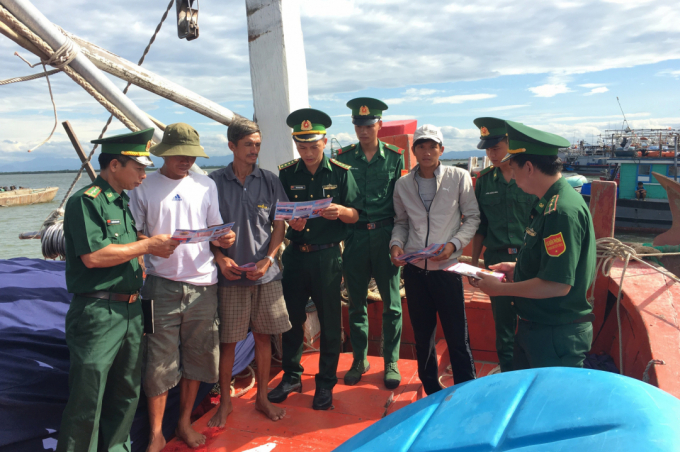
Border guard forces propagate and mobilize fishing vessel owners to comply with the law on combating illegal fishing.
The installation of cruise monitoring equipment (VMS) on fishing vessels with a length of 15m or more has made progress but is still low in some provinces. Up to now, only 26,915 or 87.45% out of a total of 30,778 fishing vessels have installed VMS equipment with signals on their monitoring systems but still did not complete as schedule prescribed in the Decree No. 26/2019/ND-CP of the Government (which regulates 100% should be completed before April 1, 2020.
Provinces that have installed cruise monitoring equipment with a low rate include Thanh Hoa (46.90%), Quang Tri (60.55%), Tra Vinh (65.53%), Quang Ninh (65.53%), and Ha Tinh (65.69%).
The issuance of licenses for fishing vessels is still low. Up to now, the number of fishing vessels that have been granted fishing licenses according to regulations is 51,613 out of a total of 94,572 vessels, reaching 54.55%.
The situation that fishing vessels regularly losing connection with VMS at shore stations is still common. Especially about 2,411 fishing boats having lost connection from December 31, 2020, or earlier, however, the results of treatment in localities are still very limited.
The work of traceability for fishery products in many localities has also revealed limitations and not yet ensured the reliability of seafood traceability, such as Thai Binh, Hai Phong, Quang Ninh, Ninh Thuan, Quang Ngai, Quang Nam, Phu Yen, Quang Tri, Thanh Hoa, Nam Dinh, Soc Trang, Ha Tinh, Nghe An, Tien Giang, Bac Lieu and Tra Vinh.
The responsibility for such limitation is mainly blamed on the local authorities which have not really paid enough attention to consolidating the organizational apparatus, supplementing human resources and investing in equipment and facilities for fishing port infrastructure to improve the capacity and operational efficiency of functional forces, especially the fishing port management board, and specialized inspectors.
The situation of fishing boats violating the waters of other countries in the region still occurs with complicated developments. Provinces such as Ca Mau, Binh Dinh, Ba Ria - Vung Tau, and especially Kien Giang, have continued to let fishing vessels violate foreign waters.
The investigation and handling of the brokering actions and hooking up fishing vessels to illegally fish in foreign waters is still limited with no case to be punished as exemplary for warning and threatening
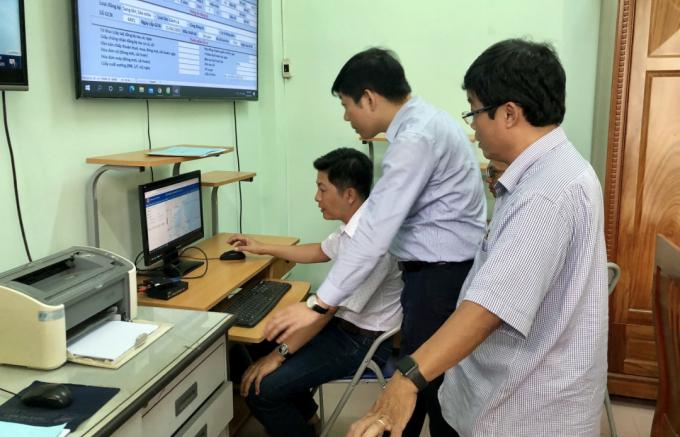
The rate of monitoring equipment installation is not high in many provinces such as Thanh Hoa, Quang Tri, Tra Vinh, Quang Ninh, and Ha Tinh.
The sanctioning of IUU fishing acts has had initial results. Specifically, in 2020, localities have discovered more than 3,200 violation cases with a total fine of more than VND70 billion.
Some provinces have initially punished ships violating foreign waters such as: Ca Mau, Kien Giang, Ben Tre, Tien Giang, Quang Ngai, Binh Dinh, and Binh Thuan. However, the administrative sanction for the violations on IUU fishing is not really strict enough, especially those in foreign waters with a low rate of cases to be handled compared to the real happening.
The causes of such situation are mainly about the responsibility of local fishing vessel management agencies which have not well performed in detecting and strictly handling the violations in accordance with regulations and law. Moreover, it is also the responsibility of the central and State management of fishing activities at sea.

(VAN) Deputy Minister Nguyen Quoc Tri also expressed his hope that Cuba will soon overcome its current challenges, attain food security, and further expand cooperation with Vietnam.

(VAN) The project contributes to enhancing the resilience of communities vulnerable to the impacts of climate change, with a primary focus on local women.
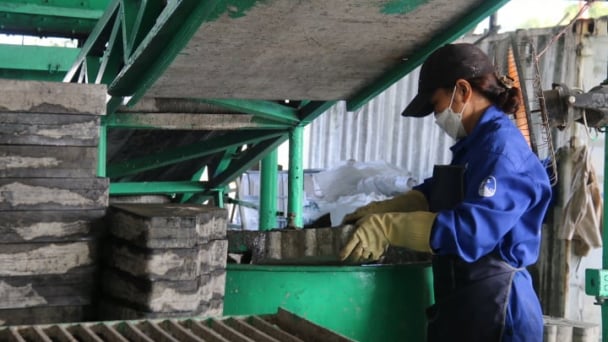
(VAN) Green materials help save energy and resources. However, after more than 10 years, Vietnam has only developed over 200 green buildings with more than 6 million square meters of floor space.
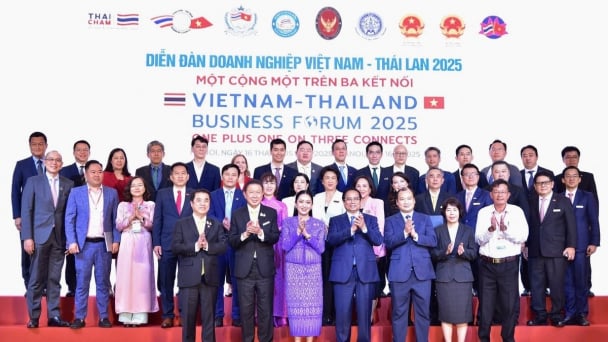
(VAN) Vietnam - Thailand Business Forum 2025: One plus one on three connects, marking a milestone in the comprehensive strategic partnership between the two nations.
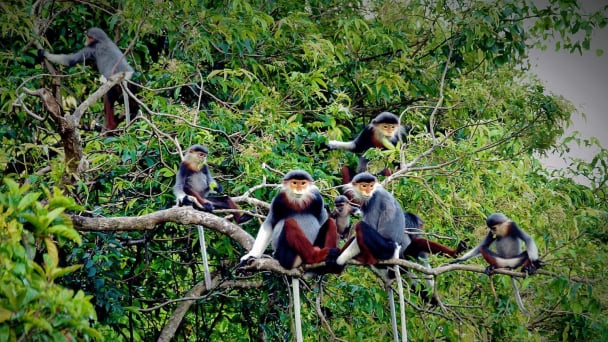
(VAN) The United Nations designated 22 May as the International Day for Biodiversity 2025 with the theme 'Harmony with nature and sustainable development.'
![Multi-channel, multi-directional Vietnamese agricultural markets: [8] A national strategy is needed](https://t.ex-cdn.com/nongnghiepmoitruong.vn/608w/files/phucpm/2025/05/15/1435-thi-truong-nong-san-viet-da-kenh-da-huongbai-8-can-mot-chien-luoc-quoc-gia-084750_728.jpg)
(VAN) The Chairman of Hung Nhon Group shared: ‘Opening up and tapping into new markets is the right and strategic direction for Vietnam's agricultural sector.’
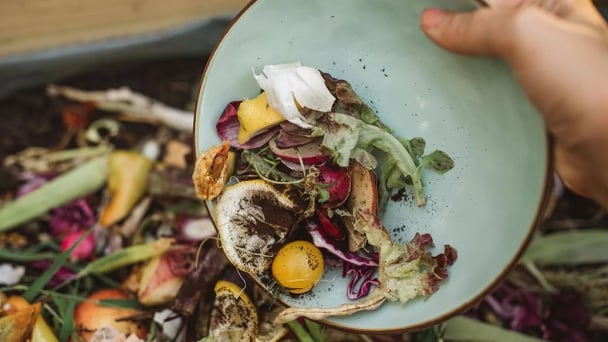
(VAN) Food waste has become a serious issue in modern society, especially in rapidly urbanizing and developing cities like Hanoi.